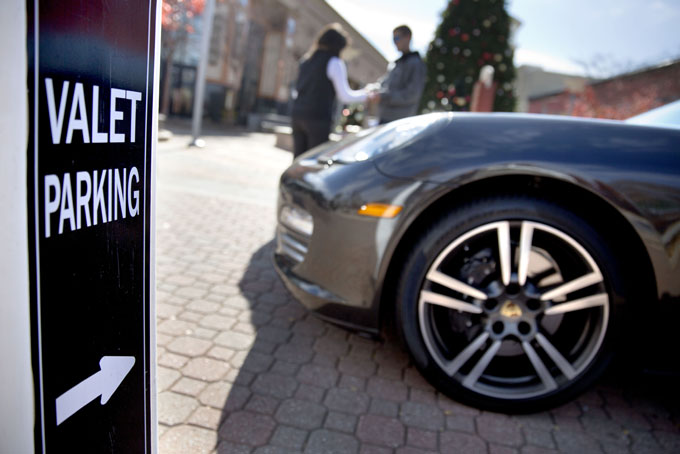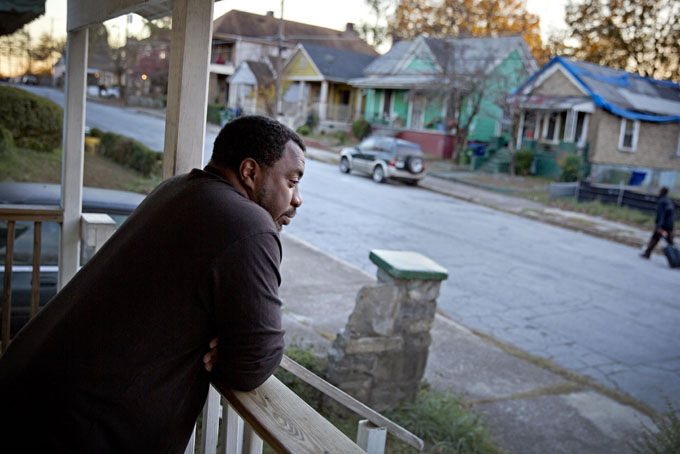
ATLANTA (AP) — For the Braves, abandoning downtown Atlanta for the suburbs means moving closer to the team’s fan base and developing money-making restaurants and amenities. Team officials say it’s simply good business.
But the decision also highlights long-standing disparities over wealth, where people live and transportation — all facets of life connected to race and social class in Atlanta. The Braves will be moving from an area that’s predominantly Black and relatively poor compared to whiter Cobb County — where the team says more ticket-buyers live. Although it is long past segregation, the hometown of slain civil rights leader Martin Luther King Jr. is far from integrated, and the city’s politics, business and even sports teams reflect that gap.
Consider what Rick Grimes views from his home blocks from Turner Field each time there’s a game: fans, mostly White, streaming past on the sidewalk.
“I would say the large majority of people who support the Braves are White folks,” said Grimes, who is African-American.

While no one would reasonably accuse the Braves of making a decision based on race or class, one scholar says major attractions often migrate toward money.
“It becomes a class issue in a lot of ways,” said Larry Keating, a Georgia Tech professor emeritus who has studied Atlanta’s development. “A lot of the primo stuff that is highly valued by the society ends up going where the wealthiest areas are.”
Team officials say they were looking at other factors. When Atlanta did not negotiate terms acceptable to the Braves, the team found a suburban government willing to pay for a chunk of the proposed stadium. The Braves will also own the property around the stadium, meaning it can develop restaurants and stores within walking distance. There are few amenities around Turner Field. Team officials say the new site would offer better transportation access considering the majority of fans come from north of the city.
“We don’t look at the exact makeup of the race, religion factor of that ticket buyer,” said Derek Schiller, executive vice president of sales and marketing for the Braves. “What we’re concerned about as a business that sells tickets is where do our ticket buyers come from? … We are moving closer to where the majority of our ticket buyers come from.”
Like many cities, metro Atlanta has an urban core that includes a large population of Black residents and suburbs that are typically whiter. Atlanta famously marketed itself as “The City Too Busy To Hate” as other Southern cities resisted integration. But the city has long-standing racial divisions.